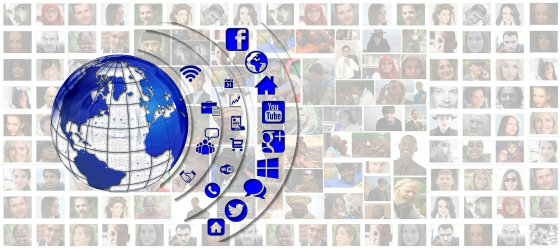The approach to regulate SNS such as Facebook is wrong in the first place

Bills that require accountability and obligatory content deletion for SNS such as Facebook are being considered in each country. But such a bill is based on e-commerce law, not because of the monopoly of the media and its effect on public opinion, thinks Natali Helberger, a researcher of informatics at the University of Amsterdam. Mr. Hellberger warned that such laws would increase the potential 'power of opinion' of SNS, and threaten democracy.
Full article: The Political Power of Platforms: How Current Attempts to Regulate Misinformation Amplify Opinion Power
There is a suspicion of Russia's interference over the 2016 presidential election, and in the process Facebook was posted to deepen the gap in public opinion in the United States and it is said to have been seen by 126 million people .. In Myanmar, Facebook was used for persecution of Rohingya, an Islamic minority, and the international research team established by the United Nations Human Rights Council pointed out that 'Facebook is a hotbed of increasing discrimination in Rohingya in Myanmar'. I am
Traditional media such as television stations, publishers, and newspaper publishers have been subject to speech control because they influence political power and are used for public opinion manipulation. However, unlike the existing media, Facebook is regarded as 'a platform for individuals to express their opinions' at the time of article creation. For this reason, Helberger points out that the approach of SNS regulation being considered in the United States and Europe may not be able to suppress the power of platforms such as Facebook, Twitter, Google.
Many countries are considering 'imposing additional accountability on platforms' as a way to regulate them. With this approach, the United States and European countries are trying to expand the control of the authorities on the platform and position the platform as a 'ruler of many speeches'.

However, Helberger warns that such approaches are potentially dangerous for democracy.
Germany has the word 'Meinungsmacht' (power of opinion). The term is defined as 'the ability of the media to influence the formation of individual or public opinion' and was coined by the German Federal Constitutional Court. The power of opinion is closely related to
Hellberger thinks that social networking platforms like Facebook should be seen as 'politic actors with their own power of opinion' like existing media, not as 'mediators of others' opinions.' thinking about.
So far, SNS has rarely been discussed from the perspective of public opinion like existing media, and still requires only limited accountability within the scope of the Electronic Commerce Law. All legal efforts in France, England, Belgium, etc. are based on the premise that the user is the speaker, not the platform. Although it is possible for SNS to exert greater political power than broadcasting stations, SNS uses this type of approach because it exercises the power of opinion differently from typical media. Hellberger said the 'power of' itself needs to be revisited.

In fact, Facebook's CEO Mark Zuckerberg himself said in 2017, ``The candidate with the most Facebook followers wins in the recent elections worldwide, from India to Indonesia to Europe and the United States. 'Social media has played a role in the 21st century, just as television became the dominant medium for citizen communication in the 1960s.'
Following the epidemic of the new coronavirus infectious disease (COVID-19), the government and the platform are shifting to a system of 'cooperative relationship'. The government is using the digital platform to understand the status of infections and formulate strategies, and is embracing the power of the platform. It is in this context that the government is heading towards 'promoting governance' rather than offsetting the power of the platform. However, this may increase the power of the opinion of the platform rather than suppress it.
Existing media such as television, publishers and newspapers are considered to be powerful actors in democracy as 'guard dogs' who monitor power and how it influences public opinion formation. For this reason, laws have been established to create diverse media and disperse the power of opinion in order to prevent monopoly. Social media has been debated within the scope of the Electronic Securities and Exchange Law, but from the perspective of its potential public opinion, some social media go beyond accountability and need stronger regulation. Hellberger said.
Related Posts:
in Web Service, Posted by darkhorse_log







